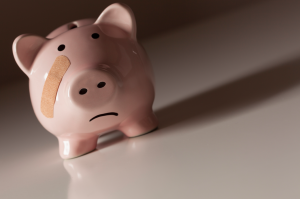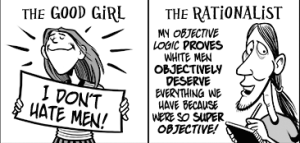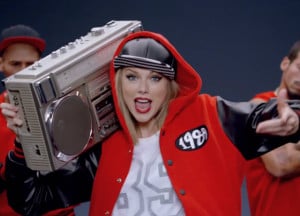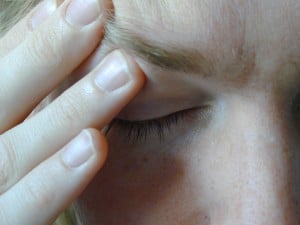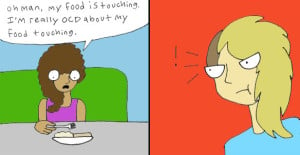
Credit: Twicsy
Picture this: it’s a beautiful, sunny Fathers’ Day in Washington, DC. A million flowers in bloom line the sidewalk I walk down toward a friend’s barbecue, talking to my dad on the phone.
But before I can say “Happy Fathers’ Day,” I hear “You’re so sexy. Can I give you a ride?” Two men in a car have slowed down to keep pace with me on the sidewalk.
I tell them no. I tell them to leave me alone. When at last I lose my temper and hurl a curse at them, I’m subjected to two straight minutes of screaming and verbal abuse from the men.
I’m a fucking bitch, I’m an ugly cunt, and all I can do is walk as fast as possible and hope that one of the many people observing this from their front porches will do something to intervene.
They don’t.
Finally, the car speeds off. My dad’s voice in my ear surprises me. I had forgotten all about the cell phone in my hand.
I’m not sure what to say in response to his question: “Are you okay?”
Every day, online forums like Hollaback, Stop Street Harassment, and the blog of my organization, Collective Action for Safe Spaces, post stories just like this, or worse. Browse some of the stories, and you’ll see: people who experience harassment are not okay.
They are angry, humiliated, and scared.
Angry, because if you are a woman, there is a 99 percent chance you’ve been sexually harassed in public. In fact, there’s a 20 percent chance you’ve been experiencing harassment since you were 12 years old. If you are gay, transgender, or bisexual, there’s a 90 percent chance you’ve been verbally harassed at work or school. Many say that they experience harassment every day.
Imagine what it might be like to be made to feel, on a daily basis, that your body or gender presentation is public property to be commented on, touched, or assaulted on a whim.
Humiliated, because harassment is not about sexual attraction. It is a reminder, from the harasser to the harassee, that the harasser has power — power to hurt and embarrass.
For many women, it can be a reminder that they live in a society that values them for little more than the sum of their body parts.
Scared, because every instance of harassment contains the threat of violence. This threat can be explicit, or implied: what if I don’t respond the way the harasser thinks I should? Will he follow me? Will he pull me into his car? What if I see him again when it’s dark, or I’m alone, or he has friends with him?
And even as people everywhere speak out against harassment, just as many defend these actions or dismiss them.
There are five ways public sexual harassment is commonly defended.
1. “Harassment is unfortunate, but completely normal. You just have to deal with it.”
There’s no doubt that street harassment is normalized in our culture. Just watch TV, listen to music, or pay attention to advertisements and you’ll see it being made light of. Even people who are frequently harassed are not immune to this normalization, and many cope with harassment by doing their best to ignore it. On the other hand, straight, cisgender men may be unaware of the problem because if they don’t harass others, they rarely experience harassment.
But whether or not you feel the negative effects of harassment, can you really continue to tolerate a world in which it’s “normal” for your female or queer-identifying friends, family, and neighbors to constantly feel less safe in public than men do?
Women report that they avoid eye contact and walking alone in public, or change their outfits or routes to avoid harassment. This might not seem like a big deal until you understand that, for many, it’s a daily ritual that can still fail to keep them safe.
2. “Relax. It’s a compliment!”
It’s a fair assumption that if women go to such lengths to avoid street harassment, they probably don’t consider it a compliment. Unsolicited attention on their appearance or body is far more likely to make people feel uncomfortable than flattered, especially if society has a tendency to place undue value on their appearance over any other qualities.
By the same token, while there may be “gray areas” where individual unsolicited comments can be interpreted as flattering and polite, this isn’t a very good defense. Women frequently have their bodies commented on or threatened in public, and some might not want to hear it, even if the intention is good.
It’s more important to focus on treating everyone with respect than to hold women responsible for correctly guessing each time whether someone genuinely means to pay a compliment or is harassing them.
3. “It’s just a little harmless fun. Boys will be boys!”
We already know that, for the harassees, the experience of harassment is most definitely not fun. This argument presumes that men and boys are little more than animals with no control over their instincts and no ability to stop themselves from hurting others.
Honestly, if you identify as male, you should be offended by this one.
4. “What about flirting? What if I meet THE ONE at the bus stop tomorrow? Are you telling me I can’t say ‘hello’?!”
There are still plenty of people out there who believe that feminism is no more than a plot to disrupt the continuation of the species. It’s not, I swear! Many feminists, male and female, love flirting and practice it often — but we recognize that flirting takes two.
It gets scary when the flirter won’t leave the object of their attention alone, even when she makes it clear she’s not interested. Remember that people who are frequently harassed can be on guard the moment they step out of the house, and it’s on the flirter to treat the flirtee with respect and know when to back off.
The flirter may be disappointed that their good intentions were flouted, but they should understand that a positive reaction is not an entitlement.
5. “Harassment has everything to do with what neighborhood you’re in/what you look like/what you’re wearing. What do you expect if you walk out of the house in that short skirt?”
Wrong, wrong, and SO wrong. Harassment happens everywhere, at any time of day. It happens to people of every race, age, class, and sexual orientation, and in some if its most pernicious forms, it intersects with other prejudices like racism or ableism.
Because it is motivated by the harasser’s desire to assert power over the harassee and not by sexual attraction, it has little to do with what the harassee looks like. And as with more serious crimes on the spectrum of sexual violence, no one is asking to be harassed, no matter what they wear.
Sexy outfits are never an invitation for harassment or any other kind of gender-based violence.
When people normalize and defend public sexual harassment, they silence those who would speak out. But as more activists around the world stand up and say they’ve had enough, these misconceptions are getting kicked to the curb – where they belong.
Have you tried to explain why street harassment is wrong before? Please share your experience below.
[do_widget id=”text-101″]
Zosia Sztykowski lives in Washington, DC and has been holla-ing back to street harassment for over a year with Collective Action for Safe Spaces. CASS combines the kickass online activism of Hollaback with grassroots organizing, innovative direct services, and public advocacy to end street harassment. Follow Zosia at @zosiasztyk, and CASS at @safespacesdc.
Search our 3000+ articles!
Read our articles about:
Our online racial justice training
Used by hundreds of universities, non-profits, and businesses.
Click to learn more





